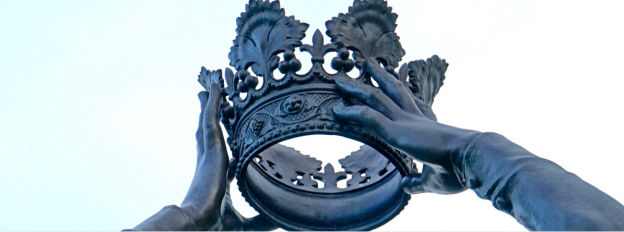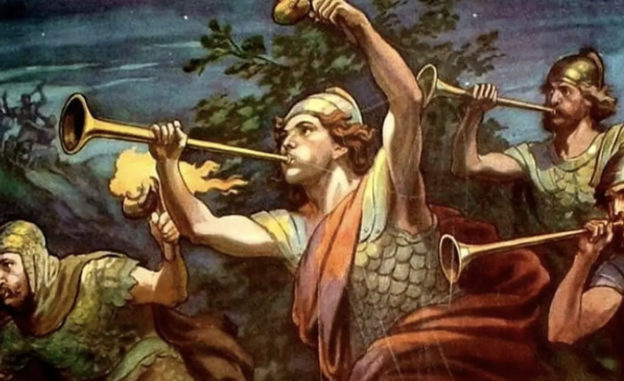Read Judges 8:33-9:21
Our National Anthem asks God (somewhat ironically perhaps, due to our pagan nature) to defend New Zealand. It includes a request to guard our country from the “shafts of strife and war” – that is, from troubles caused by foreign invaders and domestic trouble-makers.
While we often think of the former, we don’t always think of the latter. Even more so, when the bringers of strife are in charge (this is not a specific political statement!). Sadly for Israel, after Gideon’s end the wrong kind of king took charge as part of God’s judgement on Israel for their apostasy.
The first thing to note from this passage is the conditions that created the wrong kind of king. Remember, firstly, that while Gideon declined the position of king, much of his life looked rather king-like (vv.22-32).
Secondly, despite everything Gideon achieved for Israel in God’s name and power, after his death Israel very quickly forgot both. As soon as Gideon died, Israel committed spiritual adultery with “Baal-berith”, a weird synergistic religion merging the Baal of Canaan with the covenantal context of their relationship with God (Baal-berith means “Baal of the covenant”; v.33).
While Israel might have “remembered” God in their factual knowledge, they did not remember God through relationship with him (v.34). Sadly, Israel did not treat Gideon’s family with loving respect because of Gideon’s deeds for them either (v.35).
The second thing to note from this passage is Israel’s choosing the wrong kind of leader as king. Gideon’s story ends by foreshadowing a fellow called Abimelech (“my father is king”), born to a concubine of Gideon’s and raised in another town (v.31).
Abimelech went to the elders of his home town and suggested that with Gideon gone, it would be better if they were ruled by one of their fellow clansmen than by Gideon’s sons from up the road (vv.1-2).
Sadly Shechem’s leaders listened to Abimelech, and they gave him money to hire some ruffians and mercenaries to kill Gideon’s 70 legitimate sons (vv.3-5). Only one, Jotham, escaped.
With the competition out of the way, Shechem anointed Abimelech, their man, as king (v.6).
The third thing to note is the curse on Abimelech and Shechem. While all the leaders of Shechem gathered solemnly to place the crown on Abimelech’s head, Gideon’s surviving son Jotham called out words of objection from Mount Gerizim (v.7, ironically the mount of blessing, cf. Deut. 27:12-13).
Jotham cursed them both with a fable. Trees seek a ruler, and ask the noble olive tree, fig, and vine to rule over them (vv.8-13). All three, each in turn, reject the offer. The trees then turn to the bramble and offer it the kingship, which the bramble accepts (vv.14-15).
The message is less about kingship and more about choosing the wrong kind of king. The trees were so desperate for leadership that when the noble types with something to contribute and most suited declined, they went for the lower quality kind. The kind that offers no real shade, and is actually a fire hazard in dry weather.
Jotham applied this fable to Shechem and Abimelech in verses 16 to 20. Their choice of leader was poor, based on family ties rather than value of character. The sort of person willing to kill 70 half brothers for power is unworthy of the office.
The sort of person, and people, willing to cheapen the memory of someone who saved them from oppression by wiping out his family, were not making wise choices. Disaster would follow, and a curse upon them for their acts. Such fellows burn themselves and those with them.
Understandably, Jotham quickly fled after dropping this truth bomb (v.21). The man whose name cries out God’s perfection played no further part in history; Abimelech was Gideon’s legacy.
Like Israel, there is a lesson here for us. Leadership of the church is not for our favourites or those with a hunger for power, but for those who meet the character requirements (eg, 1 Timothy 3). In short, mature Christian men who can teach (elders) or serve (deacons).
The hasty laying on of hands for any with an interest, despite their suitability, all too often leads to fires in the church and disaster. The right type of leadership is needed. That provided by God, in his own timing and quantity.
Sadly while plenty of churches get it wrong and reap the curse, the world is far more likely to get it wrong. Trusting the government is hopeless. Too many people who seek power do so for their own ends (not a political statement!), or start with good motives but end badly. Many nations have followed a “bramble” into disaster.
The only true leader who lacks any “bramble” is Jesus, who is the right kind of king. Jesus’ self-sacrificial leadership to save us, his people, is the very opposite of Abimelech. Jesus’ Father truly is the Great King. His leadership is that we should follow, and model. Rejected by his own, nevertheless Jesus is the right kind of king.




